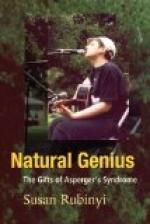Thus, for years, now, has
he wandered,
All ungreeted
and unknown,
Through so many a foreign
country,
Bowed and broken
and alone.
Weary unto death, he lays
him
’Neath a
tree, in evening’s beam,
Music in the twigs and blossoms
Sings him to an
endless dream.
Men that to and fro pass by
him,
Speak in softened
tones of grief;
Who may be the poor old beggar,
That has found
this sad relief?
But mild Nature, soft-eyed
Nature,
Knows the aged
sleeper there,
Obsequies of solemn splendor,
Meet for king,
will she prepare.
From the tree fall wreaths
of blossoms,
Floating down
to crown his head,
And a sceptre’s golden
lustre
Sunset on his
staff hath shed.
For a canopy above him
Rustling twigs
a green arch throw,
And he wears a royal purple
In the evening’s
mantling glow.
RECOLLECTIONS OF NEANDER,
THE CHURCH HISTORIAN.
BY THE REV. ROSWELL D. HITCHCOCK, D.D.
In the spring of 1848, during the progress of the European revolutions, which promised so much and performed so little, I spent several weeks in Berlin, the capital of Prussia, and saw much, both in public and in private, of “the father of modern church history,” whose name I had long revered, and whose image now is one of the choicest treasures of memory. Of all the Christian scholars I have ever known, he stands in my thoughts without a rival; a child in simplicity, a sage in learning, and in broad, catholic and fervent piety, a noble saint. In common with hundreds of my countrymen, I owe him a debt of gratitude, of which this humble tribute to his memory will be but a faint acknowledgment.
Of Neander’s outward history there is but little to be reported; his life was the retired and uneventful one of a peculiarly intense and abstracted student. It is hardly a figure of speech, but almost exactly the literal truth to say that he was born, and lived, and died, beneath the shadow of the Universities. He was not, indeed, quite so much of a recluse as his fellow-countryman Kant, the renowned Koenigsberg philosopher, who, though he reached the age of eighty, and had a reputation which filled all Europe, was never more than thirty-two miles away from the spot where his mother rocked him in his cradle. But considering the ampler means at his command, and the greatly increased facilities for travelling, Neander’s neglect of locomotion is nearly as much to be wondered at as Kant’s; I doubt if he was ever beyond the boundaries of Germany.
He was born January 16th, 1789, in Goettingen, a city of some eleven thousand inhabitants in the kingdom of Hanover, the seat of a famous University, which, though now less prominent than formerly, has numbered amongst its professors such men as Blumenbach, Eichhorn, and Michaelis. His parents were of Jewish blood and the Jewish religion, and he inherited from them, in a strong degree, both the peculiar physiognomy and the distinguishing faith of that despised but most remarkable race. Nor was he a Jew only outwardly; from the beginning he was marked as an Israelite indeed, a true Nathanael soul.




